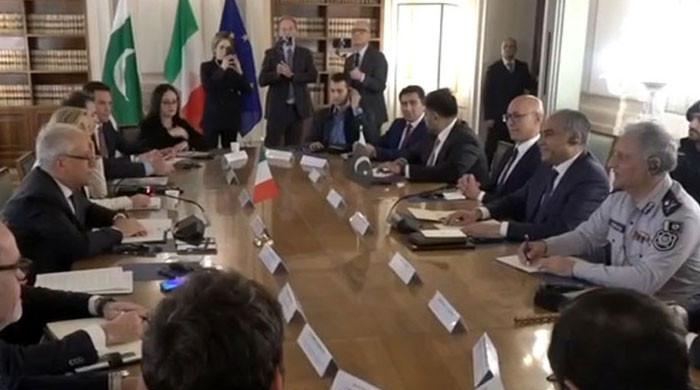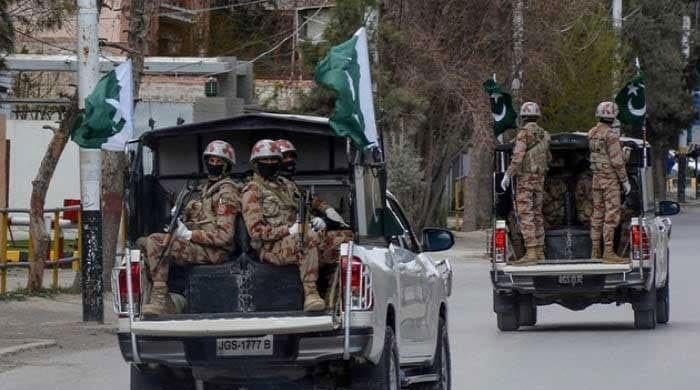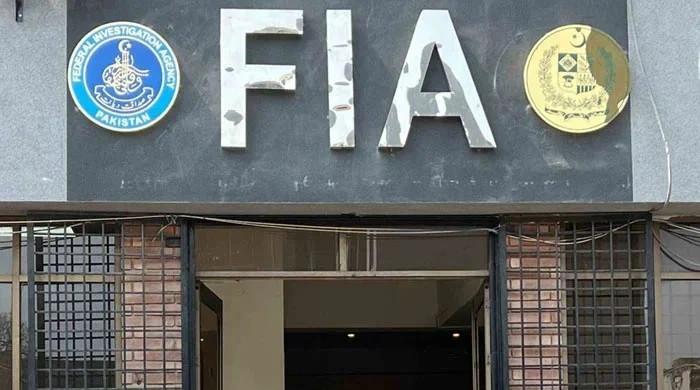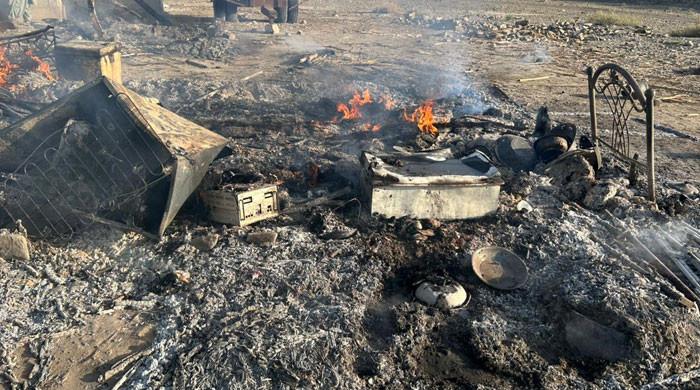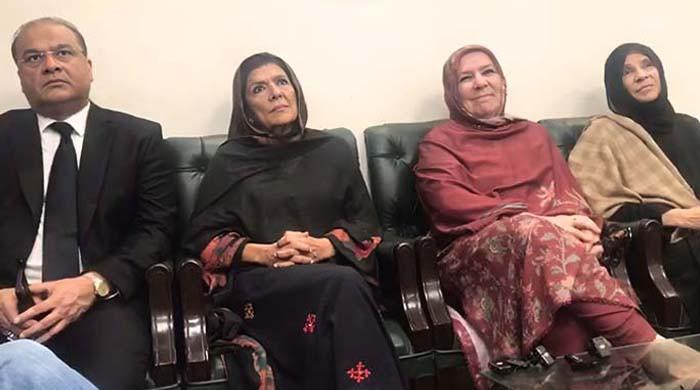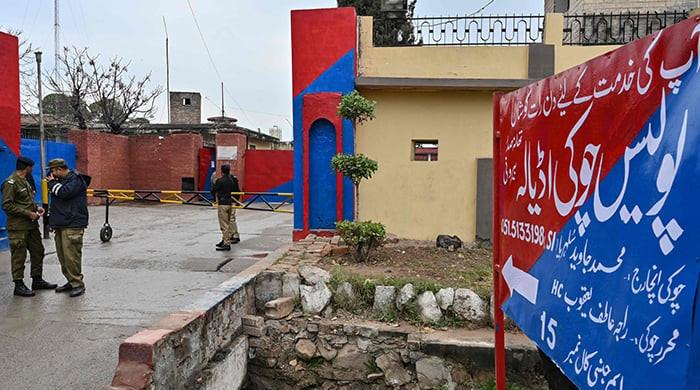Pakistan will not allow India to unilaterally suspend IWT, says PM Shehbaz
New Delhi’s provocations were firmly countered — both on battlefield, diplomatic front: premier
May 31, 2025
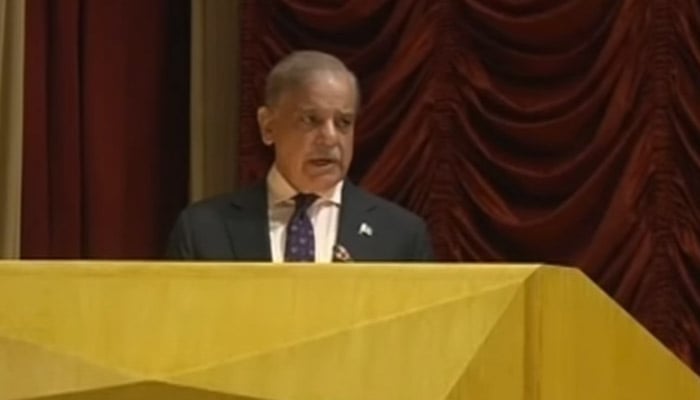
- India’s repeated provocations were firmly countered by Pakistan: PM.
- Premier commends performance of armed forces during operation.
- "PAF showed professionalism by downing Indian jets."
QUETTA: Prime Minister Shehbaz Sharif on Saturday reiterated that Pakistan would not allow India to unilaterally suspend the Indus Waters Treaty, warning that water cannot be used as a weapon against the country.
Addressing army officers at the Command and Staff College Quetta, the premier said that India’s repeated provocations — including using the Pahalgam incident as a pretext for aggression — were firmly countered by Pakistan, both on the battlefield and diplomatic front.
“The Pakistan Air Force showed its professionalism by downing Indian jets and targeting seven high-value enemy assets. Air Chief Marshal Zaheer Ahmed Babar proved his mettle, while Chief of Army Staff Asim Munir delivered a historic victory, cementing his stature as a deserving Field Marshal,” he added.
The military confrontation between the two countries was triggered by last month’s attack in Indian Illegally Occupied Jammu and Kashmir (IIOJK) that left 26 tourists dead, with India blaming Pakistan for the attack without offering any evidence.
Earlier this month, Pakistan's armed forces launched a large-scale retaliatory military action, named "Operation Bunyan-um-Marsoos", and targeted several Indian military targets across multiple regions.
Pakistan downed six IAF fighter jets, including three Rafale, and dozens of drones. After at least 87 hours, the war between the two nuclear-armed nations ended on May 10 with a ceasefire agreement brokered by the United States.
According to ISPR, a total of 53 individuals, including 13 personnel of the armed forces and 40 civilians, were martyred in Indian strikes during the recent military confrontation.
In his address today, the prime minister further said that the government and people of Pakistan stood shoulder to shoulder with the armed forces in safeguarding the country’s sovereignty.
Welcoming foreign guests at the institution, PM Shehbaz said their presence reflected Pakistan’s strong ties with friendly nations. He lauded the Command and Staff College for its outstanding contributions in shaping the country's military leadership.
Speaking of the economic front, the premier noted that the recent successful agreement with the International Monetary Fund (IMF) had brought much-needed stability, with inflation coming down from 38% to single digits.
“There is now a need for deep-rooted structural reforms to ensure sustainable economic growth that benefits the common man,” he added.
Reaffirming Pakistan’s resolve, the premier warned that any future misadventure by India would be met with a resolute and forceful response.
Earlier, PM Shehbaz arrived in Quetta on a day-long visit. Upon his arrival, he was received by Acting Governor and Speaker Balochistan Assembly Abdul Khaliq Achakzai and Chief Minister Balochistan Mir Sarfraz Bugti.
PM commends armed forces' performance
Separately, the Inter-Services Public Relations (ISPR) said that PM Shehbaz visited Command and Staff College Quetta and addressed the faculty and graduating officers.
The premier commended the outstanding performance of the Pakistan Armed Forces during Operation Bunyan-um-Marsoos.
He also praised the bravery, professionalism, and sacrifice of the Armed Forces, saying that their exemplary conduct has earned the nation's highest accolades.
PM Shehbaz highlighted the importance of the armed forces in safeguarding the country's sovereignty, territorial integrity, and security. He reaffirmed the government's commitment to supporting the Armed Forces in their mission to protect the nation.
He also emphasised the need for continued synergy between all elements of national power in addressing challenges and the pursuit of national interests.
PM Shehbaz noted that India, after having suffered a humiliating defeat during Marka-e-Haq, has now intensified its campaign of terrorism inside Pakistan through its proxies.
He expressed resolve that all such nefarious and ill designs of India and its proxy, Fitna al Hindustan, would be defeated by the Pakistani nation.




